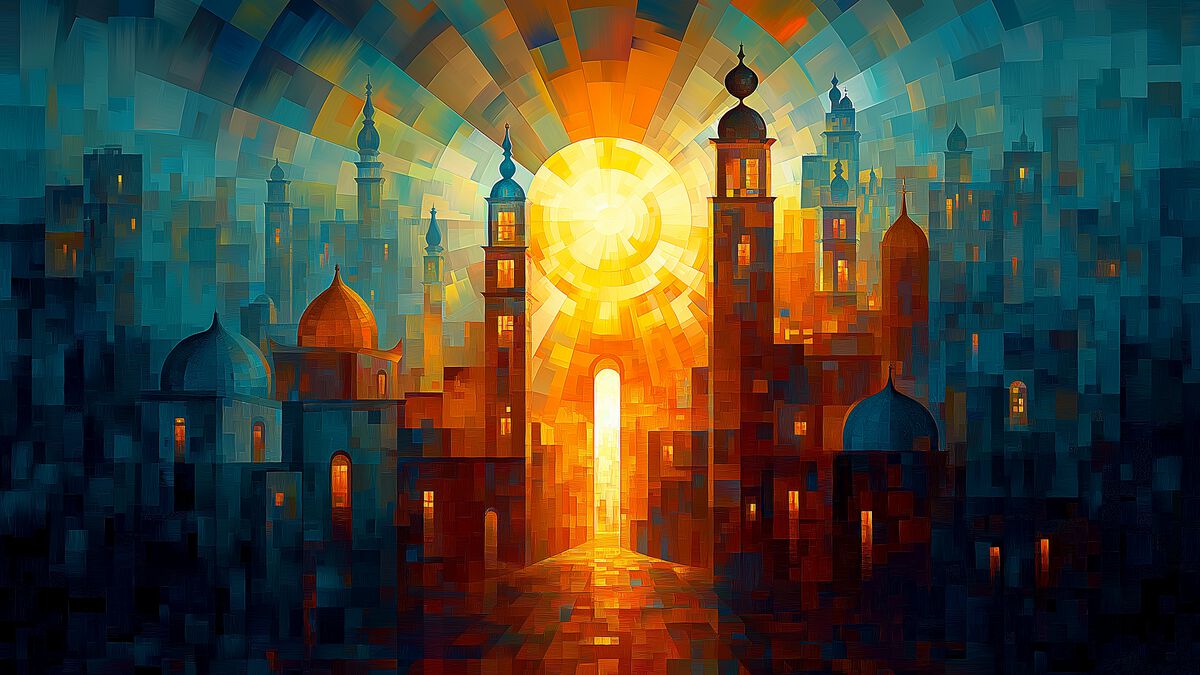Atheists All: Brent, Karl, Dale, and I
Lincoln Cannon
27 March 2008 (updated 3 January 2026)
Brent Allsop, a director of the Mormon Transhumanist Association (MTA), describes himself as a Mormon atheist. You may be wondering (along with Aubrey de Grey, I’ve been told) whether that’s some kind of joke. Well, no. It’s not a joke.
Brent is entirely serious about both his Mormonism and his atheism. As I understand the matter, his faith is directed at a God that doesn’t exist … yet. Qnd he’s persuaded that Mormonism has something to offer in the effort to create and become that God.
Karl Hale, also a director of the MTA, doesn’t typically describe himself as an atheist. Yet there may have been an atypical moment. Karl, subsequent to a discussion about the Simulation Argument, considered the demographics of Transhumanists and wondered aloud why so many are atheists.
Chris Bradford (yes, another director of the MTA) replied with a question. “Do you believe in supernatural beings?” Karl then stood and loudly declared himself an atheist. I wasn’t there, but that’s what I remember of the story.
Dale Carrico, about whom I wrote previously, is neither Mormon nor theist – nor Transhumanist, nor bioconservative, nor technoprogressive. He is, however, an atheist of the assuredly “crusty” and “cheerfully nonjudgmental” sort.
Dale criticizes Transhumanist advocates of immortality for being too much like theists. Their superlative rhetoric, he says, does not sufficiently address “the gap between an essentially theological concept exhibited as a trait by nothing on earth and a presumably proximately engineerable outcome.”
The unstated implication is that at least some (all?) concepts of theism have not been and presumably never will be manifest in our concrete experience of the world. I wonder if this reveals something of the source of Dale’s atheism.
When I read Joshua’s biblical challenge to choose a god, I am reminded of the apostle Paul’s observation that there are many Gods. How, then, shall we choose? As my friend, Leonard Reil, once put it: the question is not whether a particular god exists, but rather whether that god will save you.
Can the only-superlative god save you? Only if the practical consequences of your faith do not matter for your salvation.
Faith in the only-superlative god manifests itself in the environmental problems of our day. Why bother caring for the Earth if god’s omnipotence can take us all away before it matters?
Such faith manifests itself in our international hostility. Why not bring on the war to end all wars if that’s what god’s perfectly infallible foreknowledge mandates?
That only-superlative faith even manifests itself in our relations with our neighbors. Why should I spend time with them when they’ve rejected the absolute word of god and are certainly going to hell?
The practical consequence of generally consistent faith in the only-superlative god is descent toward nihilism. If God is only a superlative (or even a host of superlatives), I too am an atheist. Yet, even here and perhaps especially here, the hand raised to finish the dying god is the sign of the oath to the resurrecting God.
Because a lazy thinker somewhere is likely to interpret this post as evidence that the MTA is an evil cult of demon worshipers, I should add the following for the record:
-
Brent is among the most compassionate persons I know. Despite fear-inspired stereotypes, atheism simply doesn’t negatively correlate with compassion.
-
Karl and I expressly identify as theists, as do most members of the MTA. Although we have faith in God, we do not always believe everything every theist ever believes about God.
-
Dale really is a worshiper of demo … uh, crats. Sorry, Dale, but demonizing antagonists has always worked perfectly! ;)



